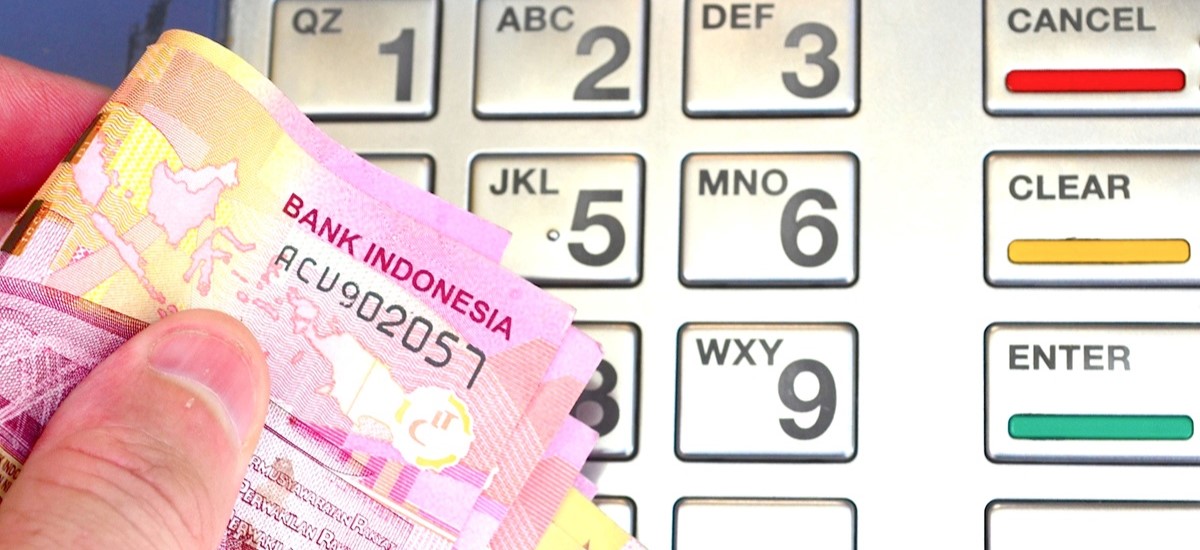Bali tourist tax: What you need to know
Travelling to Bali soon? Find out everything about the Bali tourist tax and essential travel tips.

Planning a tropical vacation in Bali? If it’s next on your list, you’re likely working on your travel budget. Regardless of how much you plan to spend, understanding the habits of the locals is key when preparing for a trip. Some places are still cash-oriented, while others prefer cashless payment methods.
While digital payments are becoming more popular, Bali and all of Indonesia remain largely cash-oriented. However, depending on your travel style, you may be able to rely mostly on cards and e-wallets. We’ll explore this further and help answer the question - which is more convenient, cash or card in Bali?
We’ll also show you a cost-effective way to handle your finances in Bali with Wise. For any international purchases, online or in person, you can rely on the Wise card. You can even withdraw Indonesian rupiahs like a local for low fees* and at the mid-market exchange rate.
Cash is the most popular payment method in all of Indonesia. Over 80% of all POS payments are made with cash and this has remained unchanged for years.1
However, cashless payments are expected to increase in the future, especially e-wallets. Since a high percentage of the Indonesian population still doesn’t have a bank account, these platforms offer a way for them to stay connected with digital trends.2
Although cash is essential in Indonesia, Bali might be an exception. If you plan to stay within your resort, you may be able to get by using only cashless methods.
Tipping isn't compulsory in Bali and it's not considered rude if you choose not to tip. However, leaving a tip is welcomed, as it is viewed as a gesture of appreciation for good service rather than a requirement. This is especially true in the tourism sector, where many locals earn the most from foreign visitors.3
The usual tip amount in restaurants is 5-10% or simply rounding up the bill. You can also tip taxi drivers and hotel staff if you’re happy with the service.3
You can tip with any denomination, though smaller bills are preferred. To make this easier, it's a good idea to break larger bills at the start of your trip.3

We’ve listed some common situations where you’ll be paying for things in Bali. Here’s whether you’ll be able to pay by card, in cash or both:
| Paying for… | Card 💳 | Cash 👛 |
|---|---|---|
| 🚕 Taxis4 | Sometimes | Yes |
| 🚗 Ride-sharing apps5 | Yes | Yes |
| 🏪 Convenience stores6 | In popular chains, yes | Yes |
| 🛕 Temples and shrines7 | No | Yes |
| 🚌 Public transport8 | Depends on transport | Yes |
| ☕ Coffee shops6 | Sometimes | Yes |
| 🍢 Warungs9 | No | Yes |
Want to work out exactly how much things cost? Explore our live Indonesian exchange rate currency converter.
With over 100,000 ATMs in Indonesia, finding one in Bali won't be a challenge. Just look along popular tourist streets, in shopping malls or at the airport.10
Foreign cards like Visa or Mastercard are widely accepted. Other card types may not be supported, so make sure to bring one of these.10
You can typically withdraw up to 3 million Indonesian rupiah per transaction, though ATM fees can reach up to 100,000 Indonesian rupiah. However, there are also ATMs without any fees or withdrawal limits.10
If you have a Visa or a Mastercard, your UK debit card will likely work in Bali. However, keep in mind that some places might not accept cards at all.
Similar to debit cards, you can use your UK-issued credit card in Bali as long as you visit a place that accepts card payments.

Cash remains the most widely used payment method in Bali. It’s accepted everywhere and used in more than 80% of transactions. It’s often the only option available in some smaller establishments, public transport or with street vendors. Family-owned shops and restaurants are what makes Bali special, so make sure you don’t miss out on them due to not carrying cash.
If you choose to explore more of Indonesia and go off the beaten path, cash will be essential. It’s not only often your only option, but it will also open the door to many authentic experiences.
Even if you’re staying in an all-inclusive resort, it's a good idea to carry some cash. This is important for tipping the hotel staff, since card tips won’t be an option.

If you don't really plan to leave your hotel often, you may be able to rely mostly on your card. Also, it's always safer not to carry large amounts of cash while traveling, since it reduces the risk of pickpockets.
With the growing popularity of digital wallets, contactless payments are becoming increasingly common in Bali. The limit for contactless transactions is usually 1 million Indonesian rupiah.11
Your Wise card can also be used for contactless payments in Bali. If you don’t want to carry multiple cards with you, you can get the Wise virtual card with the same features.
Besides the traditional cards and cash, other payment methods are available in Bali.
While popular digital wallets like Apple Pay and Google Pay aren't available in Indonesia, there are plenty of local alternatives. Some of the most popular ones are GoPay, OVO, ShopeePay, DANA and LinkAja.12
Many of these wallets have teamed up with major Indonesian delivery and ride-hailing apps. For example, GoPay has partnered with Gojek, while OVO has partnered with Grab and Tokopedia.12
For an additional layer of security, you could add your Wise virtual card to your wallet. It has all the benefits of a regular Wise card, but it exists in your phone only. You can freeze your Wise virtual card after every transaction, too.
QRIS, short for Quick Response Code Indonesian Standard, is a quick payment system which consists of users scanning a QR code provided by merchants. This method can be used for paying in stores, but locals also use it for interbank transfers or for paying their bills. This is a growingly popular method since it doesn’t require either cash or cards.13
If you had to choose between cash or card in Bali, cash would be the better option. It’s widely used and accepted everywhere, including small restaurants and street vendors, and is often the only payment method available. Cash is also the preferred way to leave tips.
That said, you can combine both cash and cards during your trip. Each has its advantages, so you can decide which is more convenient depending on the situation.
Cash remains the most popular payment method in Bali, so if you had to choose just one, cash would be your best bet. However, cards can be a convenient option, especially for safety when spending abroad.
If you want to spend like a local in Indonesia and 150+ countries without worrying about exchange rates and hidden fees, the Wise card might be just the thing you’re looking for.
The Wise card can be used for all international payments, including accommodation costs and daily expenses. It automatically converts the currency at the mid-market exchange rate with only a small, transparent currency conversion fee*.
You can also use it to easily withdraw cash from the ATMs in Bali. Each month, you can make 2 withdrawals of up to 200 GBP for free. After that, there is a small charge of 0.5 GBP per withdrawal. There’s also a 1.75% fee on any amount you withdraw above 200 GBP.
Learn more about the Wise card 💳
To summarise, here are some of the most frequent questions about using cash or cards in Bali.
Ideally, you should have some cash upon arrival, but you can withdraw it from an ATM.
Yes, Visa and Mastercard are widely accepted.
Some ATMs charge up to 100,000 Indonesian rupiah, while others have no withdrawal fees at all.
Try to avoid ATMs at the airport and look for machines with no fees.
Some of them do, but it’s best to ask before getting in.
The Bali tourist tax is 150,000 Indonesian rupiah per person, approximately £7.50 each.14
The choice is yours but you don't need to exchange for local currency before arriving, as you can do so once you're in Bali.
Sources used:
1. Statista - cash use in Indonesia
2. Statista - digital payments in Indonesia
3. Woods Bali - tipping culture in Bali
4. Virgin Australia - getting around Bali
5. FINNS Beach Club - Bali taxis
6. Bali Home Immo - payment methods in Bali
7. Bali Untold - temples in Bali
8. Lonely Planet - getting around in Bali
9. Bali Untold - money in Bali
10. ATM Fee Saver - ATMs in Indonesia
11. QNB Indonesia - Visa debit contactless card
12. 2C2P - Indonesia digital payments
13. Aspire - payment methods in Indonesia
14. Love Bali - Bali tourist tax
Sources last checked on date: 08-Jan-2025
*Please see terms of use and product availability for your region or visit Wise fees and pricing for the most up to date pricing and fee information.
This publication is provided for general information purposes and does not constitute legal, tax or other professional advice from Wise Payments Limited or its subsidiaries and its affiliates, and it is not intended as a substitute for obtaining advice from a financial advisor or any other professional.
We make no representations, warranties or guarantees, whether expressed or implied, that the content in the publication is accurate, complete or up to date.

Travelling to Bali soon? Find out everything about the Bali tourist tax and essential travel tips.

This article gets you one step closer to your affordable vacation in Indonesia by detailing your options for VAT refund in Indonesia as a tourist.

Stay healthy in Bali with our detailed vaccination guide. Learn about essential shots and health tips to prepare yourself for a safe and enjoyable trip.

Read our essential guide to ATMs in Indonesia, including how to find them, fees, exchange rates, withdrawal limits and more.

The climate, the chance to snorkel and dive in pristine waters, the hustle and bustle of Jakarta and the opportunity to delve into an exotic and unique...